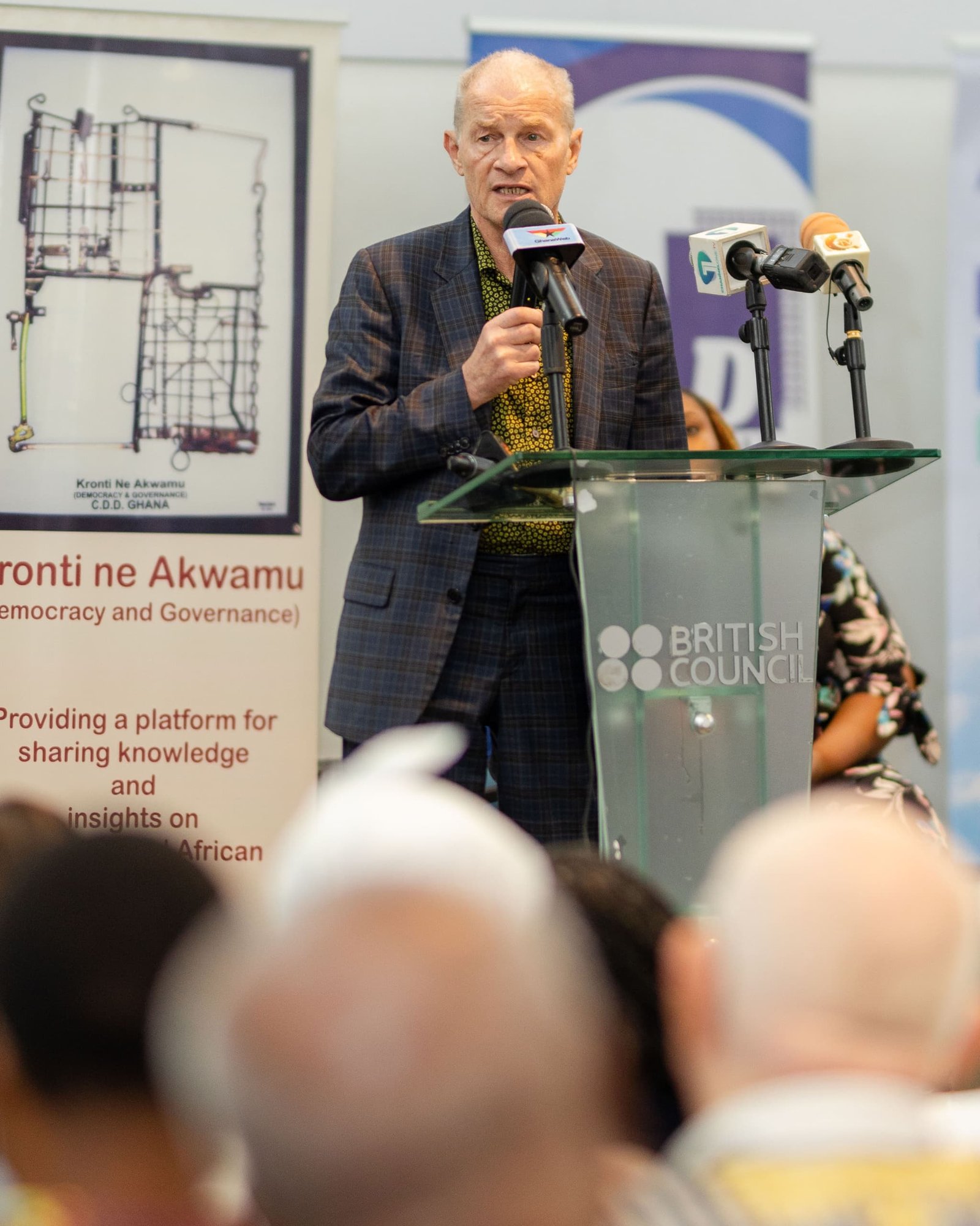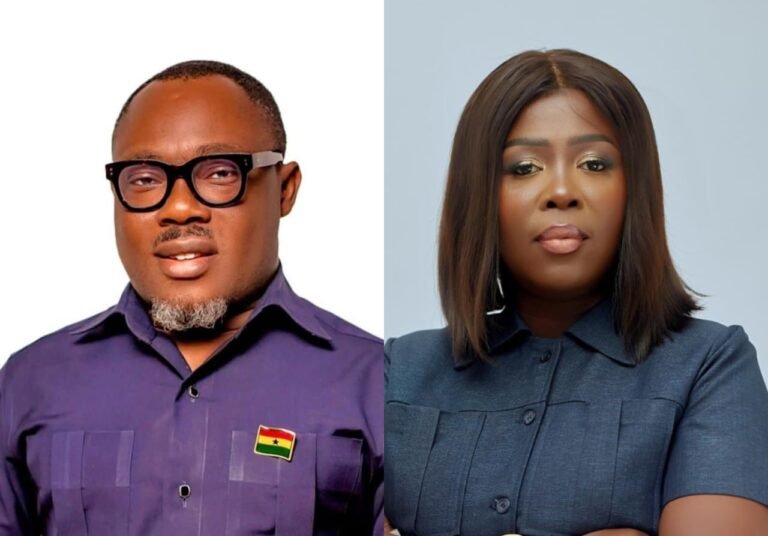
By Bright Philip Donkor
Emeritus Professor at the London Metropolitan University in the UK, Professor Jeffrey Haynes, has urged Ghanaians to be cautious about placing religion at the center of the electoral discourse, particularly with regard to the religious identities of the two major political contenders: Dr. Mahamudu Bawumia, flagbearer of the New Patriotic Party (NPP) and John Dramani Mahama of the National Democratic Congress (NDC).
He made the comments during his presentation on the topic ‘Religion and Liberal Democracy in the Fourth Republic’ at the 19th ‘Kronti ne Akwamu’ (Democracy and Good Governance) Public Lecture, hosted by the Center for Democratic Development-Ghana (CDD-Ghana). The event was held on Tuesday, November 12, 2024 at British Council Auditorium, Accra.
Prof. Haynes warned that focusing on the religious affiliations of political candidates could have serious ramifications for the nation’s democracy, peace, and stability. He explained that such a divisive approach to politics, if allowed to persist, could lead to tension and conflict, undermining the social cohesion that has supported Ghana’s reputation as one of the more stable democracies in Africa.
Role of Church
Prof. Haynes noted that while Ghana’s church community plays an undeniably significant role in the country’s socio-political fabric, it is crucial to avoid politicizing religion to the extent that it threatens national unity. “It may be that Ghana is ready for a major, and permanent, political and economic role for churches, including in development and economic refurbishment. However, this must be approached carefully, and not at the cost of exacerbating political divisions,” he said.
He emphasized the potential benefits of a more active and substantial role for the Church in Ghana’s development. “Strengthening the involvement of the Church in Ghana’s development could indeed advance the nation’s progress, complementing the state’s efforts. But before we reach that point, it is essential to have a national conversation about what role we want the Church to play in the development of our country,” Prof. Haynes asserted.
According to him, Ghana’s religious organizations, which collectively represent the largest civil society groups in the country, wield tremendous influence and could make a profound impact on the nation’s development if harnessed appropriately. He called for a thorough national conversation on the role of religion in Ghana’s future, specifically addressing the potential consequences of promoting a particular religion over others in the political and developmental spheres.
“Given that religious organizations have the largest number of followers, often surpassing that of political parties, their role in development could be significant, provided their talents are utilized productively. But should this extend to the idea of a particular religion assuming a prominent, maybe even permanent, role in the country’s political and economic development?” Prof. Haynes queried. “If this is what Ghanaians want, then it should be part of the broader conversation. But we must ask ourselves, is this the right path to take?”
National debate
In his opinion, Prof. Haynes called for a national debate on the matter before the elections, urging Ghanaians to deliberate on whether they believe the inclusion of religious institutions in the political process should extend beyond mere endorsement of candidates, to potentially shaping national policy. He expressed the importance of understanding how Ghanaians view the proposals put forward by both Dr. Bawumia and Mr. Mahama, in terms of the involvement of religious bodies in governance.
Prof. Haynes also stressed the need for the country to focus on crucial developmental issues after the elections, particularly addressing economic challenges that many Ghanaians feel acutely.
“It is clear that many citizens feel aggrieved about the state of the country, nearly 70 years after independence,” he stated. “We need to agree on a way forward that ensures religion works as a positive development and economic partner with the state, without compromising the unity that has been the cornerstone of Ghana’s stability.”




